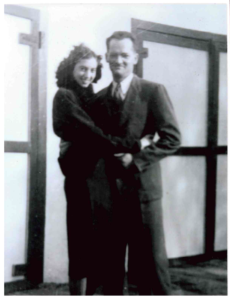A visit to the doctor was not where I thought I was going to find inspiration for a column. Waiting and waiting for an appointment that was 40 minutes late and counting, I joined my fellow patients going through the office’s magazine rack. It was strangely calm leafing through pages of a real magazine rather than the usual scrolling on a phone or tablet. It was doing a better job than my blood pressure medication, and almost made me forget how late my doctor was.
My inspiration came when I turned a page to the magazine’s “Brief News” feature that highlighted a spectrum of national and international human-interest stories or significant milestones.
The story was only three paragraphs long, and told an interesting account of a wedding in India. Indian mogul Mukesh Ambani is the chairman of India’s largest conglomerate. It is called Reliance Industries. I have no idea what it does, only that it sounds like the kind of generic names given to conglomerates run by supervillains in summer blockbuster movies. I am confident Mr. Ambani doesn’t live in a secret lair in the Himalayas and has no plans on world conquest, but whatever he does, he seems pretty good at it since the article estimates his net worth at $122 billion.
Still, he was not the story. The wedding of his son Anant to a young woman identified as a pharmaceutical heiress was the impetus that got them the three paragraphs in Time magazine.
I know F. Scott Fitzgerald told us the “rich are different,” but I had no idea how different. The wedding of Anant and his heiress went on for days, and the final bill was around $600 million.
The description of the event, or events, made the most lavish New York party J. Gatsby ever arranged look like a church basement pancake breakfast put on by the Legion of Mary to buy fresh altar linens. This nine-figure extravaganza included a guest list of Kim Kardashian, John Cena, and two former British prime ministers, Boris Johnson and Tony Blair, and a few hundred more of the couple’s closest friends. Pre-wedding galas were attended by the likes of Mark Zuckerberg and Bill Gates. My invitation must have gotten lost in the mail.
Entertainment was provided by Rhianna, Justin Bieber, Katy Perry, and Andrea Bocelli. As I finished the last paragraph I thought, so what. My wife and I had the Beatles play at our wedding reception, albeit on cassette tape.
Reading about such opulence in a country where so much poverty exists makes it easy to climb up on a high horse and condemn such extravagance. That was certainly my first inclination.
Thanks to all the time I had due to my doctor’s chronic tardiness, my better angels took hold of me and turned me toward a different kind of wedding.

The author’s parents on their wedding day in 1938. (Submitted photo)
What the Time magazine snippet described is an out-sized rendition of a trend that has become increasingly popular in the wedding industrial complex, the “destination wedding.” It is a concept that would have been completely alien to most people when my own parents were married. It was most certainly alien to them. There was no professional photographer at my parents’ wedding, my mom did not have a wedding dress, just a simple outfit she paid for with money she made working at a diner. My dad did not even have a rented tuxedo, just a simple suit he wore on special occasions. There is a lot I do not know about my parents’ wedding day — after all I was not there — but I assure you the whole thing was brought in well under a $600 million threshold.
And whereas Mr. and Mrs. Ambani probably honeymooned while tiger hunting on the back of an elegantly adorned elephant or stayed in the kind of luxurious resort villa where the average person could not afford the maids’ quarters, my mom and dad honeymooned in Van Nuys.
My parents’ wedding would not have made the local paper, let alone a national magazine, but I would suggest that on Dec. 17, 1938, they embarked on the ultimate “destination wedding.”
When they knelt in front of that altar in the same church where they would baptize all their children, they began a four-decade-long journey. It was a sojourn full of joy, sorrow, triumph, and tragedy. And the final destination that I believe in my heart and soul both of my parents arrived at after their lifetime of their sacramental covenant could not be purchased at any price — certainly not for $600 million.